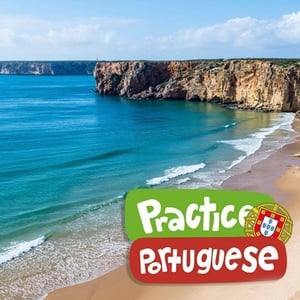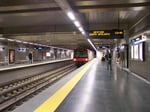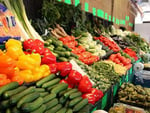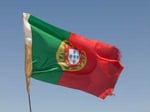1
00:00:00,542 –> 00:00:06,000
Hoje vamos fazer um episódio dirigido aos membros de nível iniciado. Recebemos vários
{{Today we will have an episode aimed towards the beginner level members. We received several}}
2
00:00:06,000 –> 00:00:13,000
e-mails a pedir episódios mais fáceis, por isso decidimos experimentar criar episódios
{{emails asking for easier episodes, so we decided to try to create episodes}}
3
00:00:13,041 –> 00:00:19,291
para iniciantes, episódios para o nível intermédio e manter os nossos episódios
{{for beginners, episodes for the intermediate level and keep our episodes}}
4
00:00:19,291 –> 00:00:21,667
para níveis avançados.
{{for advanced levels.}}
5
00:00:21,667 –> 00:00:28,458
No episódio de hoje, vamos ler um texto muito simples – Um texto com gramática e vocabulário
{{In today’s episode, we read a very simple text – a text with grammar and vocabulary}}
6
00:00:28,458 –> 00:00:31,250
de nível A1 e A2.
{{of A1 and A2 level.}}
7
00:00:31,250 –> 00:00:38,458
Ao longo da minha leitura, o Joel vai fazer resumos, em inglês, do conteúdo e eu vou aproveitar
{{Throughout my reading, Joel will make content summaries in English, and I will take the chance}}
8
00:00:38,458 –> 00:00:42,667
para esclarecer as palavras ou expressões que ele não compreendeu.
{{to clarify the words or phrases that he did not understand.}}
9
00:00:42,667 –> 00:00:47,041
Rui: So Joel, do you want to summarize what I just said?
10
00:00:47,041 –> 00:00:51,500
Joel: Today we are going to do an episode that is more geared towards our beginner listeners,
11
00:00:51,500 –> 00:00:55,333
because we received some feedback that they would like to have a little bit of content
12
00:00:55,333 –> 00:01:00,333
for beginners, as well as the intermediate and advance episodes that we do. So you are
13
00:01:00,333 –> 00:01:05,125
going to read the text and every once in a while, I am going to jump in with any questions
14
00:01:05,125 –> 00:01:09,417
to clarify what’s going on in the story or vocabulary. I was going through the
15
00:01:09,417 –> 00:01:14,208
text in advance and I saw some words that I didn’t know. So some of the vocabulary
16
00:01:14,208 –> 00:01:17,500
questions are going to be genuine.
17
00:01:20,125 –> 00:01:27,959
O Marco é professor numa escola em Lisboa. É casado com a Ana que trabalha num banco
{{Marco is a teacher at a school in Lisbon. He is married to Ana who works in a bank}}
18
00:01:27,959 –> 00:01:35,583
e juntos têm dois filhos — a Maria com seis meses e o Filipe com sete anos, que já está
{{and together they have two children — Maria who’s six months old and Filipe, seven, who’s already}}
19
00:01:35,583 –> 00:01:37,291
na escola.
{{in school.}}
20
00:01:37,291 –> 00:01:45,542
Normalmente, o Marco e a Ana levantam-se muito cedo, às 6 horas, e levam a bebé à creche
{{Usually, Marco and Ana get up very early, at 6AM, and take the baby to play school}}
21
00:01:45,542 –> 00:01:47,792
e o Filipe à escola.
{{and Filipe to school.}}
22
00:01:47,792 –> 00:01:57,041
Joel: So you got a couple, Marco and Ana. And Marco is a teacher and Ana works in a bank and they
23
00:01:57,041 –> 00:02:02,250
have got a couple of kids. So they wake up early and I think that’s as far as you got.
24
00:02:02,250 –> 00:02:06,458
And they take the baby to a place called the “creche”. What is that?
25
00:02:06,458 –> 00:02:15,083
Rui: “Creche” is the word we use for play school. Basically, is the school where you can go from
26
00:02:15,125 –> 00:02:19,959
months of age until the age of pre-school, before primary school.
27
00:02:19,959 –> 00:02:24,291
Joel: Oh… ok. So it’s like a mixture between pre-school and kindergarten.
28
00:02:24,291 –> 00:02:31,000
Rui: Sometimes we use the word “infantário” as well, which I think comes from the English
29
00:02:31,000 –> 00:02:33,375
word “infant”. We say “infantário”.
30
00:02:33,375 –> 00:02:42,000
Os pais tomam um duche, vestem-se e, de seguida, o Marco acorda o filho e prepara-o, enquanto
{{The parents take a shower, get dressed and then Marco wakes up his son and gets him ready, while}}
31
00:02:42,000 –> 00:02:48,083
a Ana acorda a Maria e veste-a. Depois disso todos tomam o pequeno-almoço.
{{Ana wakes Maria up and dresses her. After that all of them have breakfast.}}
32
00:02:48,083 –> 00:02:55,125
Os pais e o Filipe comem pão torrado com manteiga e doce e bebem leite com um pouco
{{The parents and Filipe eat toasted bread with butter and jam and drink milk with a little}}
33
00:02:55,125 –> 00:03:00,333
de café e a bebé bebe o seu biberão de leite.
{{coffee, and the baby drinks from her milk bottle.}}
34
00:03:00,333 –> 00:03:02,959
Rui: Joel, can you remember what they have for breakfast?
35
00:03:02,959 –> 00:03:07,333
Joel: Yes… so the parents are each waking up one of their kids and then, as they are getting
36
00:03:07,333 –> 00:03:10,625
ready, they are eating “pão torrado”.
37
00:03:10,625 –> 00:03:19,917
Rui: Yes. “Pão torrado” is toasted bread. We also say “torradas” but for us is just warming
38
00:03:19,917 –> 00:03:27,834
up the slices of bread. When you just warm up the bread in an appliance called “torradeira”,
39
00:03:27,834 –> 00:03:36,542
then you get “pão torrado” ou “torrada”, which is just the slice of bread, warm, ready for
40
00:03:36,542 –> 00:03:37,959
you to spread the butter.
41
00:03:37,959 –> 00:03:39,041
Joel: Like toast?
42
00:03:39,041 –> 00:03:40,583
Rui: A toast… yeah.
43
00:03:40,583 –> 00:03:46,458
Joel: And the baby is drinking… was it “biberão”?
44
00:03:46,458 –> 00:03:47,875
Rui: “Biberão” is baby bottle.
45
00:03:47,875 –> 00:03:48,667
Joel: Ok.
46
00:03:49,000 –> 00:03:58,083
Quando estão todos prontos, o Marco leva o Filipe à escola e a Ana leva a Maria à creche.
{{Once they are all ready, Marco takes Filipe to school and Ana takes Maria to play school.}}
47
00:03:58,083 –> 00:04:02,625
Ambos entram às nove horas nos seus empregos.
{{Both arrive at their jobs at nine o’clock.}}
48
00:04:02,625 –> 00:04:10,667
O Marco almoça das 12h às 13h e vai sempre comer ao café perto da escola. O seu almoço
{{Marco eats lunch from 12h to 13h and always eats at the cafe near the school. His lunch}}
49
00:04:10,667 –> 00:04:15,959
costuma ser uma sopa, uma sandes, um sumo e um café.
{{is usually soup, a sandwich, some juice and coffee.}}
50
00:04:15,959 –> 00:04:25,250
A Ana almoça das 13h às 14h. Como não quer engordar, come sempre uma salada. As saladas
{{Ana eats her lunch from 13h to 14h. As she doesn’t want to gain weight, she always has a salad. Her}}
51
00:04:25,250 –> 00:04:33,166
que ela prefere são as de frango, delícias do mar ou apenas vegetais. Por fim toma um
{{favourite ones are chicken, crab sticks or plain vegetable salads. After that, she drinks}}
52
00:04:33,166 –> 00:04:35,458
café e fica bem.
{{coffee and rests.}}
53
00:04:35,458 –> 00:04:41,000
Joel: Ok… they both arrive at their jobs around 9, they go about their day and then they have
54
00:04:41,000 –> 00:04:45,000
lunch, between, what was it… 2 and 3?
55
00:04:45,000 –> 00:04:56,041
Rui: Marco has lunch between 12h and 13h. Remember we use 24h (clock), so from 12am to 1pm. And Ana from
56
00:04:56,041 –> 00:04:58,667
13h to 14h.
57
00:04:58,667 –> 00:05:01,542
Joel: One of them is eating “delícias do mar”.
58
00:05:01,542 –> 00:05:08,417
Rui: Yes… one of the salads Ana likes is made of “delícias do mar”. It’s those white little
59
00:05:08,417 –> 00:05:15,417
bars that pretend to be made of crab or lobster meat. But it’s just actually fake.
60
00:05:15,417 –> 00:05:17,417
Joel: Imitation crab meat.
61
00:05:17,417 –> 00:05:20,792
Rui: Yeah… we eat that a lot, especially in salads, sliced.
62
00:05:21,667 –> 00:05:29,125
No final do dia, por volta das 18h, a Ana vai buscar a Maria à creche e o Marco vai
{{Later in the day, around 18h, Ana picks up Maria at play school and Marco picks}}
63
00:05:29,125 –> 00:05:35,750
buscar o Filipe e a família volta para casa. Enquanto a mãe começa a preparar o jantar,
{{up Filipe and the family goes home. While the mother starts to prepare dinner,}}
64
00:05:35,750 –> 00:05:42,959
o pai dá banho às crianças e brinca um pouco com elas. O Filipe quer contar o seu
{{the father bathes the children and plays a bit with them. Filipe wants to tell about his}}
65
00:05:42,959 –> 00:05:50,458
dia na escola e a Maria só quer atenção. Depois do jantar, os pais deitam as crianças
{{day at school and Maria just wants attention. After dinner, the parents put the kids in bed}}
66
00:05:50,458 –> 00:05:56,667
e finalmente, a sós, os pais vão para a sala conversar ou ver um pouco de televisão.
{{and finally, alone, they go to the living room to chat or watch some television.}}
67
00:05:56,667 –> 00:06:05,625
Por volta das 11PM, o Marco e a Ana vão deitar-se. E assim termina a rotina diária deste casal.
{{Around 11PM, Marco and Ana go to bed. And so it ends the daily routine of this couple.}}
68
00:06:05,625 –> 00:06:11,750
Joel: So… everybody arrives home, and then they are going about their evening routine. But before
69
00:06:11,750 –> 00:06:16,000
that, each of them picks one of the kids each from the school.
70
00:06:16,000 –> 00:06:18,417
So… Marco “dá banho às crianças”.
71
00:06:18,417 –> 00:06:27,208
Rui: Sim… ele dá banho às crianças. Gives a bath. I don’t know if you say that in English. Gives
72
00:06:27,208 –> 00:06:35,083
a bath. You got the part where I said that after they put the kids to bed?
73
00:06:35,083 –> 00:06:39,166
Joel: Yeah… they are together on the sofa and “finalmente a sós”.
74
00:06:39,166 –> 00:06:46,667
Rui: “A sós” means alone, like, they are finally alone. The same way we say for one person
75
00:06:46,667 –> 00:06:56,375
that he is “sozinho”, we say for two people they are “a sós”. It’s weird because if
76
00:06:56,375 –> 00:07:05,125
you use the word “só” with one person it’s more like they are lonely, instead of alone.
77
00:07:05,125 –> 00:07:13,250
But for two people, you can say either they are “sozinhos” somewhere, like “sozinhos no
78
00:07:13,250 –> 00:07:21,834
bar”, “sozinhos na sala”, but if you just want to say they are generically alone you say
79
00:07:21,875 –> 00:07:23,625
they are “a sós”.
80
00:07:24,792 –> 00:07:30,917
Ontem, no entanto, foi diferente porque estreou um filme que a Ana queria muito ver. O marido
{{Yesterday, however, was different because a film that Ana wanted to see premiered. The husband}}
81
00:07:30,917 –> 00:07:37,000
fez-lhe uma surpresa. Ele levou-a a jantar fora e depois foram ao cinema.
{{surprised her. He took her out to dinner and then they went to the movies.}}
82
00:07:37,000 –> 00:07:44,625
O Marco falou com os pais dele, a avó Margarida e o avô António, e eles tomaram conta das
{{Marco spoke to his parents, grandma Margarida and grandpa António, and they took care of the}}
83
00:07:44,625 –> 00:07:50,125
crianças, e assim ele e a Ana ficaram sozinhos.
{{children, and so he and Ana were alone.}}
84
00:07:50,125 –> 00:07:55,417
Os avós ficaram muito felizes, afinal as crianças iam dormir na casa deles.
{{The grandparents were very happy, after all the children were sleeping at their house.}}
85
00:07:55,417 –> 00:07:58,041
Rui: You got this part?
86
00:07:58,041 –> 00:08:05,333
Joel: Marco was sneaky and he made a surprise for Ana. He sent the kids with the grandparents,
87
00:08:05,333 –> 00:08:09,125
so that he could take Ana out to dinner and a movie.
88
00:08:09,125 –> 00:08:10,208
Rui: Exactly.
89
00:08:10,542 –> 00:08:17,458
A Maria não foi à creche e o Filipe só ficou na escola até às 13h.
{{Maria did not go to play school and Filipe only stayed at school until 13h.}}
90
00:08:17,458 –> 00:08:23,333
Os avós já tinham um programa para a tarde. Como o dia estava lindo, quente e com muito
{{The grandparents already had a plan for the afternoon. Since the day was beautiful, warm and very}}
91
00:08:23,333 –> 00:08:27,208
sol, eles decidiram que iam todos à praia.
{{sunny, they decided they were all going to the beach.}}
92
00:08:27,208 –> 00:08:34,625
A avó Margarida fez um lanche para levar. Ela fez um bolo de laranja, sandes de fiambre
{{Grandma Margarida made a snack to go. She made an orange cake, ham sandwiches}}
93
00:08:34,625 –> 00:08:42,333
e manteiga, uma caixa cheia de cerejas, muitos sumos e água e um biberão cheio de leite
{{with butter, a box full of cherries, many juices and water and a bottle full of milk}}
94
00:08:42,333 –> 00:08:43,375
para a Maria.
{{for Maria.}}
95
00:08:43,375 –> 00:08:49,417
Rui: You got that the grandmother prepared something for them to eat, cause they decided to go
96
00:08:49,417 –> 00:08:50,000
to the beach?
97
00:08:50,000 –> 00:08:54,083
Joel: Yeah… they are having a beach day. They are going to have oranges or orange juice.
98
00:08:54,083 –> 00:09:00,500
Rui: She made an orange cake, “bolo de laranja”. She made “sandes de fiambre e manteiga”.
99
00:09:00,500 –> 00:09:01,375
Joel: Yeah… “fiambre”.
100
00:09:01,375 –> 00:09:09,291
Rui: “Fiambre” is thin sliced meat. The normal “fiambre” is pork, so it’s like ham, but we
101
00:09:09,291 –> 00:09:14,417
also have “fiambre de frango”, “fiambre de peru”.
102
00:09:14,417 –> 00:09:16,500
Joel: So… they are like sliced meats.
103
00:09:16,500 –> 00:09:24,000
Rui: Yeah… different meats. And that’s it, that’s what she prepared for their snack.
104
00:09:24,000 –> 00:09:26,208
Joel: Lucky ducks!
105
00:09:26,208 –> 00:09:33,542
Rui: Yeah. we… Something that’s important to clarify,
is that we say “lanche” for a middle afternoon snack.
106
00:09:33,625 –> 00:09:36,583
Joel: I would call that a “falso amigo”, Rui.
107
00:09:36,583 –> 00:09:40,625
Rui: Yeah… because it sounds like your “almoço”, lunch.
108
00:09:40,625 –> 00:09:42,333
Joel: Lanche, lunch.
109
00:09:42,333 –> 00:09:53,792
Rui: But our word is spelt l-a-n-c-h-e – “lanche”. And it’s not your “lunch” because for that
110
00:09:53,792 –> 00:09:55,792
we have the word “almoço”.
111
00:09:55,792 –> 00:09:56,417
Joel: Ok.
112
00:09:56,417 –> 00:10:01,291
Foi só passar pela escola do Filipe e seguir para Carcavelos.
{{They just had to stop by Filipe’s school and go to Carcavelos.}}
113
00:10:01,291 –> 00:10:10,667
O avô colocou no carro a bola, o balde, a pá e os outros brinquedos e a avó levou
{{The grandfather put the ball, bucket, shovel and other toys in the car and the grandmother took}}
114
00:10:10,667 –> 00:10:15,458
o protetor solar, as camisolas e os chapéus.
{{the sunscreen, the jerseys and the hats.}}
115
00:10:15,458 –> 00:10:17,959
Joel: Rui, first off… what’s Carcavelos?
116
00:10:17,959 –> 00:10:26,708
Rui: It’s a place near Lisbon, it’s… I would say the first… not village…
117
00:10:26,708 –> 00:10:29,583
Joel: Yeah… like a small town.
118
00:10:29,583 –> 00:10:36,750
Rui: It’s like the first small town where you can find a beach, without crossing the river to
119
00:10:36,750 –> 00:10:43,917
the other side. So it’s in the shore. If you follow Lisbon, you will find these little small
120
00:10:43,917 –> 00:10:48,542
Towns, they all have a beach and Carcavelos is the first one.
121
00:10:48,542 –> 00:10:56,667
It’s not really sea water yet, it’s still a mix between the river, where the river Tejo
122
00:10:56,667 –> 00:11:02,208
opens to the ocean, so it’s a mix between salt and fresh water.
123
00:11:02,208 –> 00:11:05,542
Joel: Sounds like it’s worth a visit if I’m visiting Lisbon.
124
00:11:05,542 –> 00:11:10,458
Rui: Yeah… it’s on the way to Cascais, where everybody goes. So it’s one of those small towns that
125
00:11:10,458 –> 00:11:14,708
you see on the coast when you drive to Cascais.
126
00:11:14,708 –> 00:11:19,625
Joel: Ok. And then, getting ready to go to the beach, they packed with them “um balde”.
127
00:11:19,625 –> 00:11:27,291
Rui: Yeah… they packed a ball, a bucket, which is “balde”, and a shovel, which is “pá”.
128
00:11:27,291 –> 00:11:29,000
Joel: O pá ou a pá?
129
00:11:29,000 –> 00:11:29,875
Rui: A pá.
130
00:11:29,875 –> 00:11:30,750
Joel: Ok… feminine.
131
00:11:30,750 –> 00:11:37,834
Rui: So we call “pá” to a shovel with which kids play at the beach, that little plastic shovel.
132
00:11:37,834 –> 00:11:48,333
We also call “pá” to that big shovel that you use to dig holes and we also call “pá”
133
00:11:48,333 –> 00:11:54,166
the thing you use with the broom. There is always that thing to catch…
134
00:11:54,166 –> 00:11:56,333
Joel: Oh… the dust pan.
135
00:11:56,333 –> 00:11:58,750
Rui: The dust pan. That’s “pá”.
136
00:11:58,750 –> 00:12:01,125
Let’s see what they did at the beach.
137
00:12:01,125 –> 00:12:02,875
Joel: I can’t wait.
138
00:12:03,417 –> 00:12:12,750
Na praia, o Filipe saltou, fez buracos na areia, foi buscar baldes com água, e jogou à bola
{{At the beach, Filipe jumped, dug holes in the sand, fetched buckets of water, and threw the ball}}
139
00:12:12,750 –> 00:12:13,959
com o avô.
{{with his grandfather.}}
140
00:12:13,959 –> 00:12:23,125
A Maria pôs os seus pés pequeninos na areia pela primeira vez — ainda não sabe se gosta.
{{Maria put her little feet in the sand for the first time – still unsure if she liked it.}}
141
00:12:23,125 –> 00:12:31,792
A avó levou-a à água, mas estava tão fria que ela assustou-se. Mas da segunda vez já
{{The grandmother took her to the water, but it was so cold she got scared. However, she already liked it}}
142
00:12:31,792 –> 00:12:36,834
gostou mais. Para o ano já vai tomar banho.
{{better the second time. Next year she will be bathing in it.}}
143
00:12:36,834 –> 00:12:43,083
Depois lancharam. O Filipe comeu tudo o que a avó lhe deu e a Maria bebeu o seu biberão
{{After that they ate snacks. Filipe finished everything the grandmother gave him and Maria drank her whole}}
144
00:12:43,083 –> 00:12:49,041
todo e no fim ainda comeu sozinha uma fatia de bolo.
{{bottle and in the end even ate a slice of cake by herself.}}
145
00:12:49,041 –> 00:12:53,500
Quando o sol se escondeu, decidiram ir para casa.
{{When the sun set, they decided to go home.}}
146
00:12:54,083 –> 00:12:59,917
Joel: Alright. So… they are at the beach and they are jumping around, making “buracos na areia”.
147
00:12:59,917 –> 00:13:03,291
Rui: “Buracos na areia” – Holes in the sand.
148
00:13:03,291 –> 00:13:09,458
Joel: And then the girl, Maria… she… I guess dipped her toes in the water for the first time and
149
00:13:09,500 –> 00:13:11,542
she is not sure if she likes it yet.
150
00:13:11,542 –> 00:13:18,667
Rui: Yeah… it was cold and she got scared. And then they ate everything grandma prepared and when
151
00:13:18,667 –> 00:13:19,917
the sun…
152
00:13:19,917 –> 00:13:22,291
Joel: Oh… “escondeu-se”.
153
00:13:22,291 –> 00:13:25,792
Rui: Yeah… what would you say… “quando o sol se escondeu”?
154
00:13:25,792 –> 00:13:28,041
Joel: I guess when the sun set.
155
00:13:28,041 –> 00:13:31,000
Rui: Exactly… “esconder” means to hide away.
156
00:13:31,000 –> 00:13:34,959
Joel: So when the sun hides itself. So poetic!
157
00:13:34,959 –> 00:13:38,917
Rui: Yes, it is. We are a poetic language.
158
00:13:38,917 –> 00:13:46,708
Já em casa, as crianças tomaram banho e jantaram. Assim ficaram prontas para a cama.
{{Already at home, the children took a bath and had dinner. Thus, they were ready for bed.}}
159
00:13:46,708 –> 00:13:55,000
Mais tarde alguém tocou à campainha. O pai! Tantas saudades! Mas o dia com os avós foi
{{Later someone rang the bell. Father! We missed you so much! But the day with the grandparents was}}
160
00:13:55,000 –> 00:13:57,834
tão bom que as crianças querem repetir.
{{so good that the kids want to repeat it.}}
161
00:13:57,834 –> 00:14:05,208
Em casa, a mamã Ana encheu-os de beijinhos e foram todos dormir.
{{At home, the mother Ana filled them with kisses and they all went to sleep.}}
162
00:14:05,208 –> 00:14:08,208
Rui: Ok so… the last part is easy.
163
00:14:08,208 –> 00:14:11,625
Joel: They were at home and somebody “tocou à campainha”.
164
00:14:11,625 –> 00:14:18,166
Rui: Yeah… he rang the bell. He went to pick up the kids, so he rang at the door bell – “campainha”.
165
00:14:18,166 –> 00:14:24,417
And that’s it… he went to pick up the kids, they went home and they got kissed by their
166
00:14:24,458 –> 00:14:26,291
mummy and went to bed.
167
00:14:26,291 –> 00:14:30,834
Joel: Sounds like a pretty solid day for kids of… how old are they? I forget.
168
00:14:30,834 –> 00:14:33,000
They are… young, and one is a baby.
169
00:14:33,000 –> 00:14:37,542
Joel: And maybe next year she will go in the ocean by herself.
170
00:14:37,583 –> 00:14:44,583
Do you want to read the article again, now without my interruptions at a more native speaking speed?
171
00:14:46,208 –> 00:14:51,750
O Marco é professor numa escola em Lisboa. É casado com a Ana que trabalha num banco
{{Marco is a teacher at a school in Lisbon. He is married to Ana who works in a bank}}
172
00:14:51,750 –> 00:14:57,417
e juntos têm dois filhos: a Maria com seis meses e o Filipe com sete anos, que já está
{{and together they have two children: Maria who’s six months old and Filipe, seven, who’s already}}
173
00:14:57,417 –> 00:14:58,250
na escola.
{{in school.}}
174
00:14:58,250 –> 00:15:03,333
Normalmente, o Marco e a Ana levantam-se muito cedo, às 6 horas, e levam a bebé à creche
{{Usually, Marco and Ana get up very early, at 6AM, and take the baby to play school}}
175
00:15:03,333 –> 00:15:04,667
e o Filipe à escola.
{{and Filipe to school.}}
176
00:15:04,667 –> 00:15:10,834
Os pais tomam um duche, vestem-se e, de seguida, o Marco acorda o filho e prepara-o, enquanto
{{The parents take a shower, get dressed and then Marco wakes up his son and gets him ready, while}}
177
00:15:10,834 –> 00:15:13,792
a Ana acorda a Maria e veste-a.
{{Ana wakes Maria up and dresses her.}}
178
00:15:13,792 –> 00:15:18,708
Depois disso todos tomam o pequeno-almoço. Os pais e o Filipe comem pão torrado com
{{After that all of them have breakfast. The parents and Filipe eat toasted bread with}}
179
00:15:18,708 –> 00:15:24,625
manteiga e doce e bebem leite com um pouco de café e a bebé bebe o seu biberão de
{{butter and jam and drink milk with a little coffee, and the baby drinks from her milk}}
180
00:15:24,625 –> 00:15:25,208
leite.
{{bottle.}}
181
00:15:25,208 –> 00:15:31,041
Quando estão todos prontos, o Marco leva o Filipe à escola e a Ana leva a Maria à creche.
{{Once they are all ready, Marco takes Filipe to school and Ana takes Maria to play school.}}
182
00:15:31,041 –> 00:15:34,208
Ambos entram às nove horas nos seus empregos.
{{Both arrive at their jobs at nine o’clock.}}
183
00:15:34,208 –> 00:15:40,959
O Marco almoça das 12h às 13h e vai sempre comer ao café perto da escola. O seu almoço
{{Marco eats lunch from 12h to 13h and always eats at the cafe near the school. His lunch}}
184
00:15:40,959 –> 00:15:45,875
costuma ser uma sopa, uma sandes, um sumo e um café.
{{is usually soup, a sandwich, some juice and coffee.}}
185
00:15:45,875 –> 00:15:52,875
A Ana almoça das 13h às 14h. Como não quer engordar, come sempre uma salada. As saladas
{{Ana eats her lunch from 13h to 14h. As she doesn’t want to gain weight, she always has a salad. Her}}
186
00:15:52,875 –> 00:15:59,250
que ela prefere são as de frango, delícias do mar ou apenas vegetais. Por fim toma um
{{favourite ones are chicken, crab sticks or plain vegetable salads. After that, she drinks}}
187
00:15:59,250 –> 00:16:01,375
café e fica bem.
{{coffee and rests.}}
188
00:16:01,375 –> 00:16:06,583
No final do dia, por volta das 18h, a Ana vai buscar a Maria à creche e o Marco vai
{{Later in the day, around 18h, Ana picks up Maria at play school and Marco picks}}
189
00:16:06,583 –> 00:16:09,583
buscar o Filipe e a família volta para casa.
{{up Filipe and the family goes home.}}
190
00:16:09,583 –> 00:16:15,000
Enquanto a mãe começa a preparar o jantar, o pai dá banho às crianças e brinca um
{{While the mother starts to prepare dinner, the father bathes the children and plays a}}
191
00:16:15,000 –> 00:16:21,542
pouco com elas. O Filipe quer contar o seu dia na escola e a Maria só quer atenção.
{{bit with them. Filipe wants to tell about his day at school and Maria just wants attention.}}
192
00:16:21,542 –> 00:16:26,625
Depois do jantar, os pais deitam as crianças e, finalmente a sós, os pais vão para a sala
{{After dinner, the parents put the kids in bed and, finally alone, they go to the living room}}
193
00:16:26,625 –> 00:16:29,000
conversar ou ver um pouco de televisão.
{{to chat or watch some television.}}
194
00:16:29,000 –> 00:16:37,041
Por volta das 11PM, o Marco e a Ana vão deitar-se. E assim termina a rotina diária deste casal.
{{Around 11PM, Marco and Ana go to bed. And so it ends the daily routine of this couple.}}
195
00:16:37,041 –> 00:16:42,959
Ontem, no entanto, foi diferente porque estreou um filme que a Ana queria muito ver. O marido
{{Yesterday, however, was different because a film that Ana wanted to see premiered. The husband}}
196
00:16:42,959 –> 00:16:48,166
fez-lhe uma surpresa. Ele levou-a a jantar fora e depois foram ao cinema.
{{surprised her. He took her out to dinner and then they went to the movies.}}
197
00:16:48,166 –> 00:16:54,959
O Marco falou com os pais dele, a avó Margarida e o avô António. Eles tomaram conta das
{{Marco spoke to his parents, grandma Margarida and grandpa António, and they took care of the}}
198
00:16:54,959 –> 00:16:59,250
crianças e assim ele e a Ana ficaram sozinhos.
{{children, and so he and Ana were alone.}}
199
00:16:59,250 –> 00:17:03,542
Os avós ficaram muito felizes, afinal as crianças iam dormir na casa deles.
{{The grandparents were very happy, after all the children were sleeping at their house.}}
200
00:17:03,542 –> 00:17:08,708
A Maria não foi à creche e o Filipe só ficou na escola até às 13h.
{{Maria did not go to play school and Filipe only stayed at school until 13h.}}
201
00:17:08,708 –> 00:17:13,834
E os avós já tinham um programa para a tarde. Como o dia estava lindo, quente e com muito
{{The grandparents already had a plan for the afternoon. Since the day was beautiful, warm and very}}
202
00:17:13,834 –> 00:17:17,333
sol, eles decidiram que iam todos à praia.
{{sunny, they decided they were all going to the beach.}}
203
00:17:17,333 –> 00:17:23,125
A avó Margarida fez um lanche para levar. Ela fez um bolo de laranja, sandes de fiambre
{{Grandma Margarida made a snack to go. She made an orange cake, ham sandwiches}}
204
00:17:23,125 –> 00:17:29,750
e manteiga, uma caixa cheia de cerejas, muitos sumos e água e um biberão cheio de leite
{{with butter, a box full of cherries, many juices and water and a bottle full of milk}}
205
00:17:29,750 –> 00:17:31,250
para a Maria.
{{for Maria.}}
206
00:17:31,250 –> 00:17:35,041
Foi só passar pela escola do Filipe e seguir para Carcavelos.
{{They just had to stop by Filipe’s school and go to Carcavelos.}}
207
00:17:35,041 –> 00:17:42,834
O avô colocou no carro a bola, o balde, a pá e os outros brinquedos e a avó levou
{{The grandfather put the ball, bucket, shovel and other toys in the car and the grandmother took}}
208
00:17:42,834 –> 00:17:47,083
o protetor solar, as camisolas e os chapéus.
{{the sunscreen, the jerseys and the hats.}}
209
00:17:47,083 –> 00:17:52,250
Assim bem protegidos, aproveitaram a tarde e brincaram muito.
{{Thus, well-protected, they enjoyed the afternoon and played a lot.}}
210
00:17:52,250 –> 00:17:59,375
Na praia o Filipe saltou, fez buracos na areia, foi buscar baldes com água, e jogou à bola
{{At the beach, Filipe jumped, dug holes in the sand, fetched buckets of water, and threw the ball}}
211
00:17:59,375 –> 00:18:00,583
com o avô.
{{with his grandfather.}}
212
00:18:00,583 –> 00:18:06,375
A Maria pôs os seus pés pequeninos na areia pela primeira vez — ainda não sabe se gosta.
{{Maria put her little feet in the sand for the first time – still unsure if she liked it.}}
213
00:18:06,375 –> 00:18:12,834
A avó levou-a à água, mas estava tão fria que ela assustou-se. Mas da segunda vez já
{{The grandmother took her to the water, but it was so cold she got scared. However, she already liked it}}
214
00:18:12,834 –> 00:18:16,792
gostou mais. Para o ano já vai tomar banho.
{{better the second time. Next year she will be bathing in it.}}
215
00:18:16,792 –> 00:18:21,375
Depois lancharam. O Filipe comeu tudo o que a avó lhe deu e a Maria bebeu o seu biberão
{{After that they ate snacks. Filipe finished everything the grandmother gave him and Maria drank her whole}}
216
00:18:21,375 –> 00:18:25,500
todo e no fim ainda comeu sozinha uma fatia de bolo.
{{bottle and in the end even ate a slice of cake by herself.}}
217
00:18:25,500 –> 00:18:29,291
Quando o sol se escondeu, decidiram ir para casa.
{{When the sun set, they decided to go home.}}
218
00:18:29,291 –> 00:18:35,583
Já em casa, as crianças tomaram banho e jantaram. Assim ficaram prontas para a cama.
{{Already at home, the children took a bath and had dinner. Thus, they were ready for bed.}}
219
00:18:35,583 –> 00:18:42,125
Mais tarde alguém tocou à campainha. O pai! Tantas saudades! Mas o dia com os avós foi
{{Later someone rang the bell. Father! We missed you so much! But the day with the grandparents was}}
220
00:18:42,125 –> 00:18:44,875
tão bom que as crianças querem repetir.
{{so good that the kids want to repeat it.}}
221
00:18:44,875 –> 00:18:52,166
Em casa, a mamã Ana encheu-os de beijinhos e foram todos dormir.
{{At home, the mother Ana filled them with kisses and they all went to sleep.}}
222
00:18:52,166 –> 00:18:59,792
Rui: Então… este foi um episódio muito simples, vocabulário e gramática de nível iniciado.
{{Rui: So… this was a very simple episode, vocabulary and grammar at beginner level.}}
223
00:18:59,792 –> 00:19:05,542
Alguma dúvida é só escreverem um e-mail para Practice Portuguese.
{{Any doubts, just write an email to Practice Portuguese.}}
224
00:19:05,542 –> 00:19:07,959
Joel: I had a great time today, Rui. Did you?
225
00:19:07,959 –> 00:19:10,250
Rui: I had a great and amazing time!
226
00:19:10,250 –> 00:19:11,208
Joel: Curtiste?
{{Joel: Did you enjoy it?}}
227
00:19:11,208 –> 00:19:13,834
Rui: Curti bué… foi bué fixe!
{{Rui: Enjoyed a lot… it was pretty great!}}
228
00:19:13,834 –> 00:19:16,792
Joel: Alright… that’s some “calão”. That is for future episodes.
229
00:19:16,792 –> 00:19:20,959
Rui: Yeah… this is “calão” that is important to know…
230
00:19:20,959 –> 00:19:22,834
Joel: If you’re talking with teenagers.
231
00:19:22,834 –> 00:19:24,500
Rui: Exactly and so…
232
00:19:24,500 –> 00:19:26,208
Joel: I think that’s our episode. (laughs)
233
00:19:29,083 –> 00:19:30,583
Rui: Até à próxima!
{{Rui: Until next time!}}
234
00:19:30,583 –> 00:19:31,208
Joel: Tchau.
{{Joel: Bye.}}
 We respect your privacy and have a ZERO TOLERANCE for spam.
We respect your privacy and have a ZERO TOLERANCE for spam.














Têm uma voz muito fixe! E os episódios estão sempre bem explicados. 🙂
Obrigada 🙂
this was the best one having a discussion during the reading really helped me! thanks!!!
Hi, I just signed up, but when I try any episode the play screen does not show up. It is just blank!
Thanks for you help!
Jakub
Thanks for your support and for the message, Jakub! That is strange, is your web browser or device you’re using up to date? Older browser versions can cause problems with some of the technology on our site. If you’re still having problems, shoot us a message on the support form and we’ll explore the issue a bit further with you 😉 Abraço!
I found this episode really helpful. Muito obrigada
Obrigada meninos. Eu sempre aproveito de ouvir os episódios, bom trabalho! 🙂
I have been trying to play artigo 19, Um Dia Na Praia and can’t get it to play. Can you please help?
Olá Sandra! Thanks for the question and for your support as a premium member! We’ve been having some trouble with the new audio player in some browsers – is it possible for you to try them out in Chrome to see if that helps? Obrigado!
Ola Joel
I have tried Um Dia Na Praia in Chrome and it works fine. Muito obrigada pela ajuda.
Sandra
Hi Joel and Rui, thanks for these amazing and invaluable podcasts.
As a new learner to Portuguese, I’m finding the dialogues, the explanations, and the light banter very instructive, and also a lot of fun to listen to!
Many thanks,
Graeme
This is is great, thank you
Am I correct that ‘a criança’ is used for both male and female kid?
That’s correct 🙂 ‘Criança’ is an exclusively feminine noun (i.e. always ‘a criança’, not ‘o criança’), which applies to all genders as it is. It can only vary in number: a criança (singular) / as crianças (plural).
Hi, thank you for this episode, I learned lots of new words. I’m wondering though, avô and avó, grandfather and -mother, they sound so similar, how do portuguese people know who is meant?
The words “avô” (grandfather) and “avó” (grandmother) do sound very similar, but the distinction is in the vowel sound at the end. “Avô” has a medium “o” sound, like in “bOlo”, and “avó” has an open “o” sound, as in “bOla”. Context and full phrases usually make it clear who is being referred to anyway – either it’s “a minha avó” (instead of “o meu avô”) or “o avô” (instead of “a avó”) – but the slight difference in pronunciation is key.
Listening to native speakers and practicing Minimal Pairs can help you distinguish these subtle differences. You might find our Minimal Pairs unit helpful for this: https://www.practiceportuguese.com/units/main/minimal-pairs/
🙂